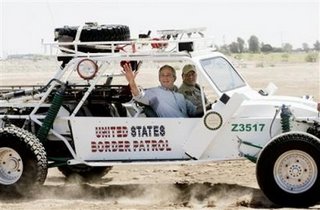Stinkins 7, Sox 5
After taking the first game of the series 9-5, the Sox dropped game two to the Stinkins Wednesday, 7-5. Tim Wakefield got hit around, giving up 6 earned runs in 6 2/3 innings, but there were several bright spots, even in a loss to the stinkin' Stinkins.
Manny Ramirez has found his stroke and went 3-for-5 with a bomb to center and 4 RBIs last night.
David Riske was effective in his return from the DL, pitching a perfect eighth inning. This is especially important while Keith Foulke struggles with consistency.
Jonathan Papelbon was lights out in the ninth, striking out Derek Jeter and blowing away Gary Sheffield with fastballs. Sure it was Sheffield's first game since going on the DL after injuring his hand against Toronto, but a 95 mph fastball is a 95 mph fastball. Papelbon appears to have the mental makeup needed to be a closer and looks to be taking on the closer's mindset -- I'm the man and I know it, and there ain't shit you can do about it.
Another encouraging sign is that Coco Crisp will return to the lineup soon. With him sidelined, Kevin Youkilis moves to the leadoff spot -- where he has done a fine job -- leaving the bottom of the order depleted. Last night's 7-8-9 hitters were Doug Mirabelli, Alex Cora and Willie Harris, who are hitting .143, .270 and .143, respectively. (Cora's numbers are inflated by his last couple games. He entered the week hitting .172. He has 10 hits this season, half of which came in the last two games.) Fortnately, all three players bring solid defense to the club (Mirabelli's problems in the sixth inning, when he was charged with three passed balls, including a dropped third strike against Alex Rodriguez, were an anomaly).
When Crisp returns, the lineup will look like this:
Crisp
Loretta
Ortiz
Ramirez
Nixon
Varitek
Lowell
Youkilis
Gonzalez/Cora
which is much more formidable.
In the meantime, the Sox send Matt Clement (4-3, 5.36) to the hill against Randy Johnson (5-4, 5.62) tonight in the series' rubber match. Clement is coming off a win against the Philadelphia Phillies in which he gave up 3 earned runs, with 5 strikeouts and three walks in 6 2/3 innings. Johnson, in his last start, gave up 6 earned runs with 3 walks and 5 strikeouts in 5 innings in a no-decision against the Mutts.
Labels: Baseball





